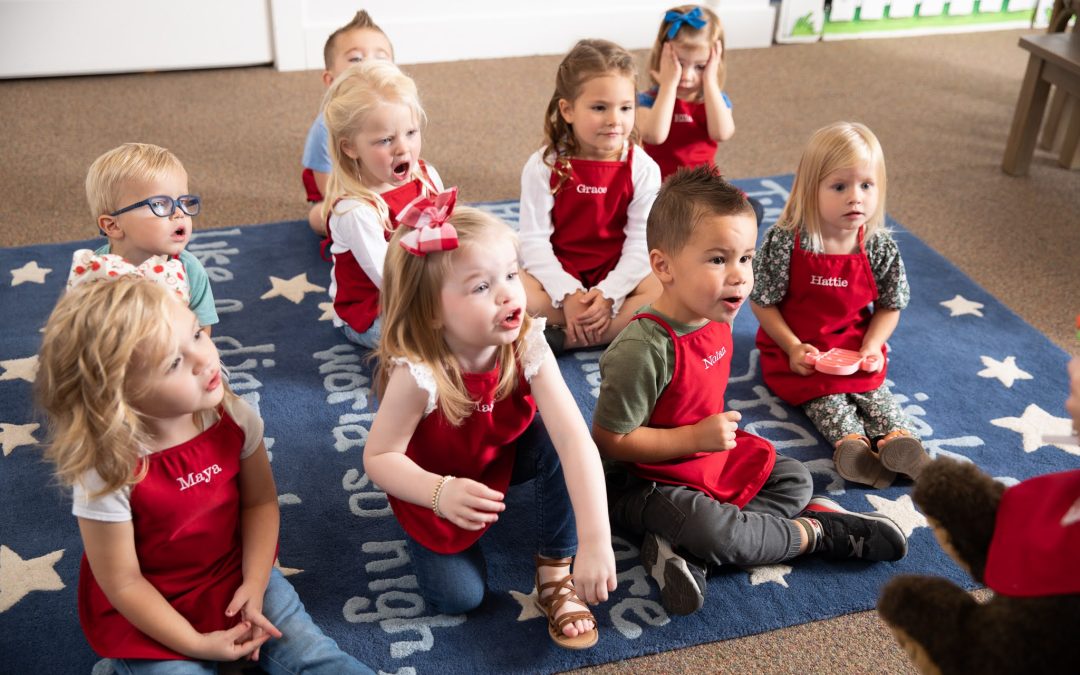Routines play a crucial role in children’s development and wellbeing. They provide a sense of stability, predictability, and security in a child’s life, which is essential for their emotional, cognitive, and social development.
Children usually start a more regimented daily schedule when they begin going to school, where they’ll have to get ready at a certain time each day, have a routine for drop-off and pickup, and have a schedule throughout the schooldays that they follow with their teacher and peers. However, extending routines into other parts of daily life can not only provide parents with a less chaotic, more predictable day, but can also have some great benefits for children as well.
How Routines Benefit Children’s Development
In this blog, we will explore the significance of establishing routines for your children and how they contribute to their growth and happiness.
Stability and Security
Children thrive in environments where they feel safe and secure. Routines create a structured and predictable daily life that offers a sense of stability. When children know what to expect, they feel more secure and less anxious. For example, having consistent meal and bedtime routines helps children know that their basic needs will be met regularly, reducing uncertainty and stress.
Time Management and Responsibility
Routines teach children about time management and responsibility. By following a schedule, they learn to manage their time effectively, which is a valuable skill they’ll carry into adulthood. For instance, a morning routine can teach children to get ready for school independently and on time, fostering a sense of responsibility for their daily tasks.
Healthy Habits
Establishing routines around meals, exercise, and bedtime can promote healthy habits. Children who have regular meal times are more likely to have balanced diets. A consistent bedtime routine ensures they get enough sleep, which is crucial for their physical and cognitive development. Additionally, routines can include time for physical activity, such as a daily family walk, which can help encourage a healthy and active lifestyle.
Academic Performance
A structured routine can also benefit a child’s academic performance. While your child likely won’t have homework in preschool or kindergarten, setting aside time for homework and study sessions early on can them develop good study habits and a strong work ethic. During the younger years, use this time to go through their school papers with them to review what they’ve done, let them show off new skills they’ve learned (“You can write your own name? Wow! Can you show me? Let’s get a paper and your favorite crayon and we can hang it on the refrigerator when we’re done!”), and to take some time to read together. This can help improve overall academic performance and promote a lifelong love of learning.
Independence and Self-Esteem
As children become accustomed to routines, they gain a sense of independence. Knowing they can take care of certain tasks by themselves, such as getting dressed, brushing their teeth, or making their bed, boosts their self-esteem and confidence. You may even find them adding to certain routines, such as brushing their own hair after bath time or picking out the books for story time.
Predictable Transitions
Transitions can be challenging for children, whether it’s starting school, moving to a new home, or any other major life change. Routines can help ease these transitions by providing a familiar and comforting structure that remains consistent even when other aspects of their lives are changing. You may find that having routines can make your child better able to handle these challenges faster, happier, and more maturely.
Final Thoughts
Establishing routines for your children is a powerful tool for their growth and development. Routines offer a stable and secure environment, teach important life skills, promote healthy habits, and contribute to emotional wellbeing. By providing structure and predictability in their lives, you’re giving your children the tools they need to thrive and succeed.

